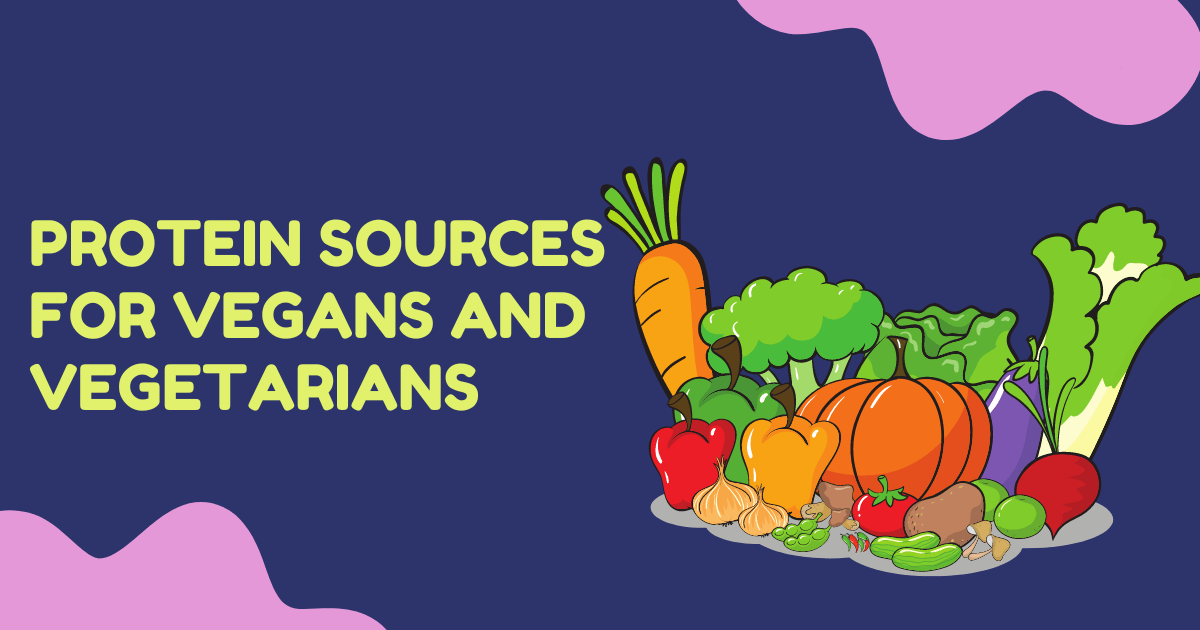In recent years, the popularity of vegan and vegetarian diets has surged, driven by concerns for health, animal welfare, and environmental sustainability. However, one common concern for those following plant-based diets is ensuring they get an adequate intake of protein. Fortunately, there are a wide variety of plant-based protein sources available, each offering its own unique nutritional benefits. In this guide, we’ll explore the best protein sources for vegans and vegetarians, providing you with all the information you need to maintain a balanced and fulfilling diet.

1. Understanding Protein and Its Importance
Before delving into the best plant-based protein sources, it’s essential to understand the role of protein in our diets. Protein is a crucial macronutrient responsible for building and repairing tissues, supporting immune function, and aiding in the production of enzymes and hormones. Without adequate protein intake, our bodies may struggle to function optimally, leading to fatigue, muscle loss, and compromised immune function.
2. Plant-Based Protein: Debunking Myths
A prevalent misunderstanding regarding plant-based diets is that they don’t provide enough protein. However, numerous plant foods are rich in protein and can easily meet the body’s needs when consumed in adequate amounts. In this chapter, we’ll debunk myths surrounding plant-based protein and showcase how a well-planned vegan or vegetarian diet can provide all the essential amino acids necessary for optimal health.
3. The Best Protein Sources for Vegans and Vegetarians
- Legumes: Plant-based protein sources that are high in protein include legumes like kidney beans, black beans, chickpeas, and lentils. They are also rich in fiber, vitamins, and minerals, making them a nutritious addition to any diet.
- Tofu and Tempeh: Derived from soybeans, tofu and tempeh are versatile protein sources commonly used in vegan and vegetarian cooking. Tofu can be marinated and grilled, while tempeh can be crumbled and used in stir-fries or sandwiches.
- Quinoa: Since quinoa contains all nine of the essential amino acids that the body is unable to produce on its own, it is considered a complete protein. Additionally, quinoa is high in fiber and antioxidants, making it a nutrient-dense grain alternative.
- Nuts and Seeds: Almonds, peanuts, chia seeds, and hemp seeds are packed with protein, healthy fats, and essential nutrients. They can be enjoyed as snacks, added to salads, or used as toppings for oatmeal and yogurt.
- Seitan: Seitan, also known as wheat gluten, is a meat substitute made from wheat protein. It has a chewy texture and can be flavored with various spices and seasonings to mimic the taste of meat.
- Edamame: Edamame, or young soybeans, are a delicious and nutritious snack that provides a good source of protein, fiber, and micronutrients. They can be enjoyed boiled or steamed and sprinkled with salt for a satisfying snack.
- Spirulina: Spirulina is a blue-green algae that is incredibly nutrient-dense and high in protein. It can be consumed in powder form and added to smoothies, juices, or energy bars for a protein boost.
- Nutritional Yeast: Nutritional yeast is a deactivated yeast that has a cheesy flavor, making it a popular ingredient in vegan cooking. It is often used as a topping for popcorn, pasta, or roasted vegetables, and it provides a significant amount of protein and B vitamins.
4. Tips for Incorporating Plant-Based Protein into Your Diet
Experiment with new recipes. Explore vegan and vegetarian cookbooks, blogs, and websites for inspiration, and try out new recipes featuring plant-based protein sources.
- Meal prep: Prepare large batches of legumes, grains, and tofu at the beginning of the week to incorporate into meals throughout the week.
- Add protein to snacks: Incorporate protein-rich foods like nuts, seeds, and edamame into your snacks to keep you feeling full and satisfied between meals.
- Use protein powders: If needed, supplement your diet with plant-based protein powders made from sources like pea, rice, or hemp protein.
Be mindful of portion sizes. While plant-based protein sources are nutritious, it’s essential to consume them in appropriate portion sizes to maintain a balanced diet.
Conclusion
In conclusion, vegan and vegetarian diets can provide ample protein when incorporating a variety of plant-based protein sources into your meals. By understanding the importance of protein, debunking myths surrounding plant-based diets, and incorporating the best protein sources into your meals, you can enjoy a balanced and fulfilling diet that supports your health and well-being. Remember to experiment with new recipes, meal prep, and portion sizes to optimize your plant-based protein intake and thrive on a vegan or vegetarian lifestyle.
Frequently Asked Question
Q: Can I get enough protein on a vegan or vegetarian diet?
Absolutely! There are plenty of plant-based protein sources, such as legumes, tofu, quinoa, nuts, and seeds. By incorporating a variety of these into your meals, you can easily meet your protein needs.
Q: Are plant-based proteins complete proteins?
While most plant-based proteins lack one or more essential amino acids, combining different sources like beans and rice or eating a varied diet ensures you get all the essential amino acids your body needs.
Q: How can I add more protein to my snacks?
Snack on protein-rich foods like almonds, edamame, or hummus with veggies. These options not only taste great but also keep you feeling satisfied between meals.
Q: Can I use protein powders on a vegan or vegetarian diet?
Yes, plant-based protein powders made from pea, rice, or hemp protein are excellent supplements. They can be added to smoothies, oatmeal, or other recipes to boost your protein intake.
Q: What are some tips for meal-prepping with plant-based proteins?
Prepare large batches of legumes, grains, and tofu at the beginning of the week. This makes it easier to incorporate these protein sources into various meals, saving you time and ensuring you have nutritious options readily available.

5 comments
Usually I do not read article on blogs however I would like to say that this writeup very compelled me to take a look at and do so Your writing taste has been amazed me Thanks quite nice post
I have been surfing online more than 3 hours today yet I never found any interesting article like yours It is pretty worth enough for me In my opinion if all web owners and bloggers made good content as you did the web will be much more useful than ever before
Usually I do not read article on blogs however I would like to say that this writeup very compelled me to take a look at and do so Your writing taste has been amazed me Thanks quite nice post
I was recommended this website by my cousin I am not sure whether this post is written by him as nobody else know such detailed about my trouble You are amazing Thanks
I do trust all the ideas youve presented in your post They are really convincing and will definitely work Nonetheless the posts are too short for newbies May just you please lengthen them a bit from next time Thank you for the post